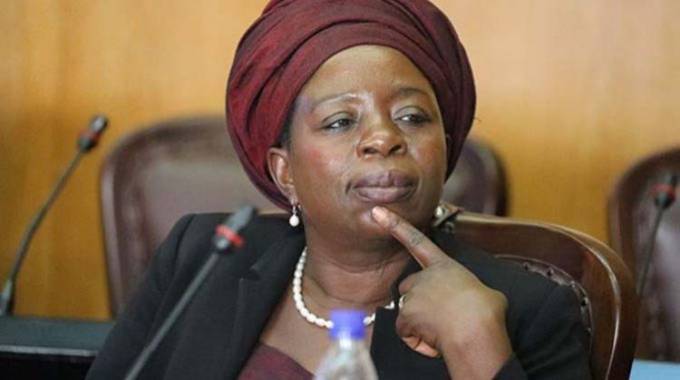
The Sunday Mail

Business Reporter
There is no better time to invest in Zimbabwe than now, Industry and Commerce Minister, Dr Sekai Nzenza said, as she implored investors to leverage on economic growth, consistent policy environment and global market opportunities.
Speaking at the eighth edition of the Southern African-European Union CEO dialogue in Johannesburg, South Africa, last week, Dr Nzenza said the Government has prioritised the ease of doing business reforms to create an enabling business environment.
“We have strived to create a policy framework which makes it easy and competitive for the pursuit of investment in Zimbabwe,” she said.
The “Zimbabwe is Open for Business” mantra, she added, has seen several measures being put in place to improve the business environment.
These include operationalisation of a one-stop shop investment and trade facilitation entity — the Zimbabwe Investment and Development Agency (ZIDA) — and creation and streamlining of the National Quality Policy with a view of aligning it to regional and international practices.
The Government is also pursuing Mutual Recognition Agreements (MRA) to smoothen trade.
Further, the mandatory provision for locals to own majority stakes in business, as was previously stipulated in the Indigenisation and Economic Empowerment Act, has since been scrapped, excepted for diamonds and platinum.
As the country pushes for industrialisation through investment and private sector-led economic development, it has consolidated pro-market trade and investment policies under the ambit of the Zimbabwe National Industrialisation Development Policy in line with the National Development Strategy 1.
The country is pursuing Bilateral Investment Promotion and Protection Agreements, as well as Multilateral Investment Guarantee Agreements to protect foreign investments.
International re-engagement is now a cornerstone of economic diplomacy.
In terms of regional integration,the Government signed and ratified the AfCFTA agreement, which gives the country access to the market worth of US$3,2 trillion in Africa.
“The productive sector in Zimbabwe is undergoing structural transformation, increasing investments in retooling and refurbishment, which will ultimately see the regeneration of the Zimbabwean economy,” said Dr Nzenza.
“Synonymous to the regeneration of the productive sector, we have witnessed increased investment by multinational companies — a targeted strategy for private sector-led growth.”
Some economists believe more still needs to be done.
“The operating environment has improved over the past few years but we still need to see improvement in our energy and water infrastructure, the exchange rate control system, the registration and licensing of businesses,” economist Dr Tapiwa Mashakada said.
“But these are issues that cannot stop investors from coming because a lot of work is being done to address these.
“But those are things that investors have to navigate (through).”
Another economist, Mr Eddie Cross, said Zimbabwe has managed to stabilise the macroeconomic environment during the past three years, a key condition for investments.
“We have local companies now failing to meet demand and that creates room for expansion.
“Investment is possible in Zimbabwe on a very large scale.”
However, he said there was need to introduce a conventional market of foreign currency trading.
“We are the only country in Southern Africa that does now have a conventional market of forex trading.
“We need to bite the bullet and introduce conventional markets to handle the foreign currency trading,” he said.
Formed on the basis of the Italy-South Africa bilateral summit, the SADC-EU platform founded by The European House-Ambrosetti in 2014 allows top-level business and institutional leaders from both continents to share ideas, build new and strong partnerships, and learn economic and political opportunities that exist within Euro-African relations, with a special focus on Southern Africa.
The summit aims to provide concrete approaches that have a direct impact for business regarding the EU’s growing attention and commitment towards Sub-Saharan Africa.



